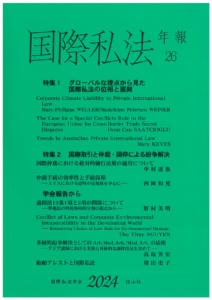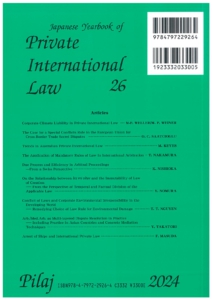Views
Book Review: The UN Guiding Principles on Business & Human Rights
This book review was written by Begüm Kilimcioglu, PhD researcher, Research Groups Law & Development and Personal Rights & Property Rights, University of Antwerp
Barnali Choudbury, The UN Guiding Principles on Business & Human Rights- A Commentary, Edward Elgar Publishing, 2023
The endorsement of the United Nations Guiding Principles (UNGPs) in 2011 represents a milestone for business and human rights as the principles successfully achieved to put the duties of different actors involved in (possible) human rights abuses on the international agenda. The UNGPs provide a non-binding yet authoritative framework for a three-pillared scheme to identify and contextualize the responsibilities with regard to business and human rights: the State’s responsibility to protect, businesses’ responsibility to respect, and facilitating access to remedy. However, although the impact of the principles can be described as ground-breaking, they have also been criticized for their vague and generic language which provides for a leeway for certain actors to circumvent their responsibilities (see Andreas Rasche & Sandra Waddock, Surya Deva, Florian Wettstein).Therefore, it is important to determine and clarify the content of the principles to increase their efficiency and effectiveness. In this light, this commentary on the UNGPs which examines all the principles one-by-one through the inputs of various prominent scholars, academics, experts and practitioners is indeed a reference guide to when working on corporate social responsibility.
The Visible College of International Lawyers and the HCCH 2019 Judgments Convention – Conference in Bonn
The HCCH 2019 Judgments Convention has been the subject of an ever-growing body of academic research and discussion ever since it was signed; but due to the pandemic, almost all of it had to happen in writing. Just in time for its entry into force, though, and thus perfectly timed, the first international conference on the HCCH 2019 Judgments Convention Cornerstones – Prospects – Outlook took place a week ago at the University of Bonn, hosted by Matthias Weller together with Moritz Brinkmann and Nina Dethloff, in cooperation with the Permanent Bureau of the HCCH, and with the support of the German Federal Ministry of Justice.
The conference brought together much of the aforementioned discussion between a range of academics, practitioners and policymakers, including the contributors to the book of the same title, edited by Matthias Weller, João Ribeiro-Bidaoui, Moritz Brinkmann, and Nina Dethloff, for which the conference doubled as a launch event. It accordingly followed the same structure, organized into seven panels overall that were split into three larger blocks.

The first of those (“Cornerstones”) focused on some of the core concepts underpinning the Convention. Wolfgang Hau (LMU Munich) discussed the meaning of ‘judgments’, ‘recognition’, and ‘enforcement’; Pietro Franzina (Catholic University of Milan) focused on the jurisdictional filters (with an emphasis on contractual obligations, i.e. Art. 5(1)(g)); and Marcos Dotta Salgueiro (University of the Republic of Montevideo) discussed the grounds for refusal. After some lively discussion, the block continued with papers on the Convention’s much-discussed Art. 29 (Cristina Mariottini (Luxembourg)) and on its interplay with the 2005 Choice of Court Convention (Paul Beaumont (University of Stirling)).
Review of Choice of Law in International Commercial Contracts
While doing research on a choice of law article, I found it necessary to consult a book generally co-edited by Professors Daniel Girsberger, Thomas Graziano, Jan Neels on Choice of Law in International Commercial Contracts (‘Girsberger et al’). The book was officially published on 22 March 2021. I began reading sections of the book related to tacit choice of law sometime in December 2022 and found the work truly global and compelling. At the beginning of June this year, I decided to read the whole book and finished reading it today. It is 1376 pages long!
To cut the whole story short, the book is the bible on choice of law in international commercial contracts. It covers over 60 countries, including regional and supranational bodies’ rules on choice of law. Professor Symoen Symeonides had previously written a single authored award winning book on Codifying Choice of Law Around the World, but that work did not cover as much as Girsberger et al’s book in terms of the number of countries, and regional and supranational instruments (or principles) covered.
News
Reminder: Call for Paper Proposals – Journal of Private International Law 20th Anniversary Conference
As posted earlier here, the conference organizers and editors of the JPIL are welcoming submissions for the 20th Anniversary Conference of the Journal of Private International Law, to be held in London 11–13 September 2025.
Proposals including an abstract of up to 500 words can be send to JPrivIL25@ucl.ac.uk until 17 January 2025.
More information can also be found here.
Out Now: The 26th Volume of the Japanese Yearbook of Private International Law (2024)


The 26th Volume of the Japanese Yearbook of Private International Law (Kokusai Shiho Nenpo) published by the Private International Law Association of Japan (Kokusai Shiho Gakkai) (hereinafter “PILAJ”)has recently been released.
This new volume features the following table of content (all links direct to the papers’ English abstracts)
Part 1 – The Status and Development of Private International Law from a Global Perspective
Corporate Climate Liability in Private International Law (in English)
Marc-Philippe WELLER and Madeleine Petersen WEINER Read more



 An ERA online seminar on Migrants in European Family Law will take place on 6-7 February 2025. For more information, click
An ERA online seminar on Migrants in European Family Law will take place on 6-7 February 2025. For more information, click